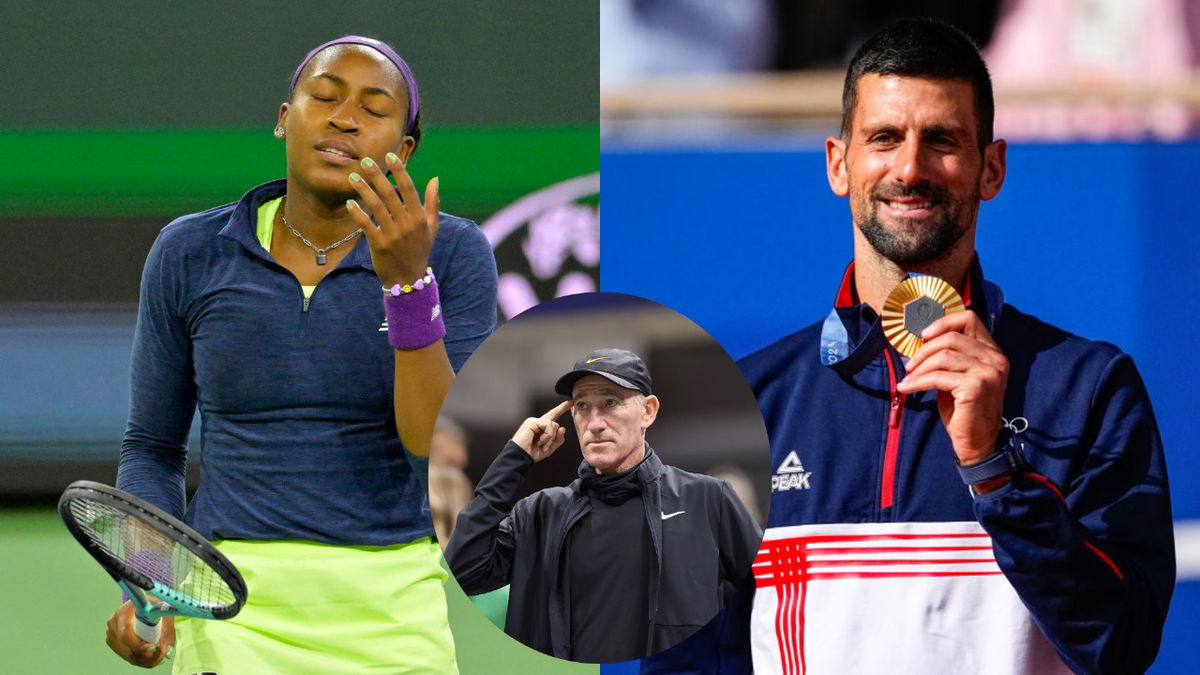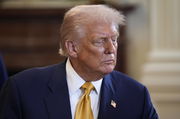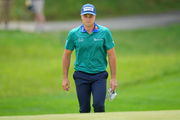
Imago
Image courtesy – Imago

Imago
Image courtesy – Imago
Sunday saw one of the most thrilling tennis matches that the Olympic Games have ever witnessed. Novak Djokovic finally achieved his dream of winning the Olympic gold by defeating Carlos Alcaraz in an entertaining encounter. Both Djokovic and Alcaraz threw it all on the court, but the Serb used his experience (and channeled the Djokovic of 2011) to pull out a hard-fought, straight-set win: 7-6 (3), 7-6 (2). Despite the match living up to everyone’s expectations and the experience turning out to be exactly what they wanted, a couple of things would’ve made it even better.
Watch What’s Trending Now!
In the lead-up to the Paris Olympics, several top players pulled out of the mega-event. Among them were Frances Tiafoe, Ben Shelton, Emma Raducanu, and Jannik Sinner. While most of their reasons were either health-related or the challenges of performing on different surfaces in quick succession, you can’t help but think that rankings and prize money may have played a role, too. After all, the Tokyo Olympics were proof of the advantage some players can get if they choose to skip the Games.
Considering that tennis events at the Olympics aren’t organized by the WTA or the ATP and are instead organized by the ITF, players don’t get any ranking points. Neither do they get any prize money, seeing as they’re representing their countries. Although players’ respective nations can award them with prize money, the IOC has no such mandate. At least not for tennis. But seeing how much playing at the Olympics means to players, there have been many calls to change this rule to boost players’ participation.
ADVERTISEMENT
Coco Gauff’s coach, Brad Gilbert, joined the discussion as he batted for players to be awarded ranking points depending on their performance in the Olympics. Taking to his X handle, Gilbert wrote, “Absolutely ridiculous. No points should be 1500 points to winners in singles and doubles. Used to have points, I believe, was, 750 to the winner.” Interestingly, the editions before the 2016 Rio Olympics offered ranking points. However, ranking points haven’t been applicable for the past three editions.
As a result, while winning the gold in Paris took Novak Djokovic’s title count to 99, he couldn’t close the gap to Jannik Sinner in the rankings. Speaking of Sinner, let’s look at how he benefitted from missing the Tokyo Olympics. By not playing in the 2021 Games, Sinner could compete in the Citi Open. Considering most of the top players at the time were at the Olympics, the draw in Washington DC featured only 8 top-40 players. The Italian cruised to victory in the US capital, earning $351,000 as prize money along with 500 ATP points. This is precisely what Sebastian Korda achieved this year.
ADVERTISEMENT
Even Casper Ruud – who played in Paris this year – won two ATP 250 tournaments during the Tokyo Olympics, earning 500 points and almost $100,000. Considering the gains both players had in the rankings, it’s understandable why people like Brad Gilbert are advocating for the Olympics to spring back ranking points. And this wasn’t the first time he shared this opinion. A few months ago, he said, “Still absolutely ridiculous; there are not at least the same points as a 1000, I think 1500 to the winner should be.”
Absolutely 💯 ridiculous no points should be 1500 points to winners in singles and doubles,used to have points, I believe was 750 to the winner
— Brad Gilbert (@bgtennisnation) August 5, 2024
ADVERTISEMENT
While the lack of points and prize money are important factors in players opting out of the Games, another important reason is the scheduling and how it fits into the tennis calendar, something both Tiafoe and Shelton took into consideration.
Top Stories
PGA Tour Pro Loses His Cool After Being Denied Entry Into WM Phoenix Open Field

Giannis Antetokounmpo All but Confirms Warriors Trade With 6-Figure Decision: NBA Rumor

James Harden Makes 7-Figure Sacrifice for Cavs Trade While Insider Debunks LA Reports

U.S. Senator Announces Bad News For NFL Fans After Donald Trump’s Ruling on ESPN’s Billion-Dollar Takeover

Giannis Antetokounmpo Makes Final Decision on Warriors Trade as Draymond Green Faces Axe – Reports

Brooks Koepka’s Unscathed Return Upsets Viktor Hovland as PGA Tour Pro Refuses to Hold Back

Center focus on Frances Tiafoe and Ben Shelton’s absence from the Olympics
While the Olympic Games were going on, Tiafoe and Shelton were due to defend some crucial ranking points. Failure to do so would have resulted in a drop in their rankings. Their compatriot, Taylor Fritz, suffered a similar fate as he dropped to 13th after starting the Olympic week at 11th. The silver lining? He and Tommy Paul brought home the bronze medal in doubles.
ADVERTISEMENT
However, considering how the drop in rankings is bound to affect Fritz’s seeding in tournaments leading up to the US Open, Ben Shelton said, “I’ve thought about it a lot. At the moment, I can say that I’m quite inclined not to go this year in case I qualify. I think they fit into the tennis schedule in a complicated way.” The Paris Games kicked off just a couple of weeks after Wimbledon, which capped off the grass-court stint of 2024. The Olympics were held at Roland Garros – the red clay of the French Open. And they ended just a handful of weeks before the US Open commences.
This switch from clay courts in May and June to grass courts in June and July, back to clay for the Olympics, followed by hard courts for the final stint of 2024, isn’t particularly good for tennis players. The change in surfaces increases the risk of injury, something no player would want, considering how close we are to the end of the season. On similar lines as Shelton, Frances Tiafoe had to forego his Olympic dream, too.
He revealed, “I care way more about the Open, being as prepared for the Open as possible. It wasn’t easy. It wasn’t easy, for sure. It still isn’t. I probably won’t be able to watch any [Olympic tennis], to be honest with you.” It makes sense why, as an American, he would want to perform well at the US Open. And it’s also a Slam where he has done well in the past.
ADVERTISEMENT
Many players and tennis pundits have come forward with their suggestions for bringing back the ranking points system at the Olympic Games. Do you think removing points for the mega-event was a mistake? Let us know your views in the comments!
ADVERTISEMENT
ADVERTISEMENT
ADVERTISEMENT